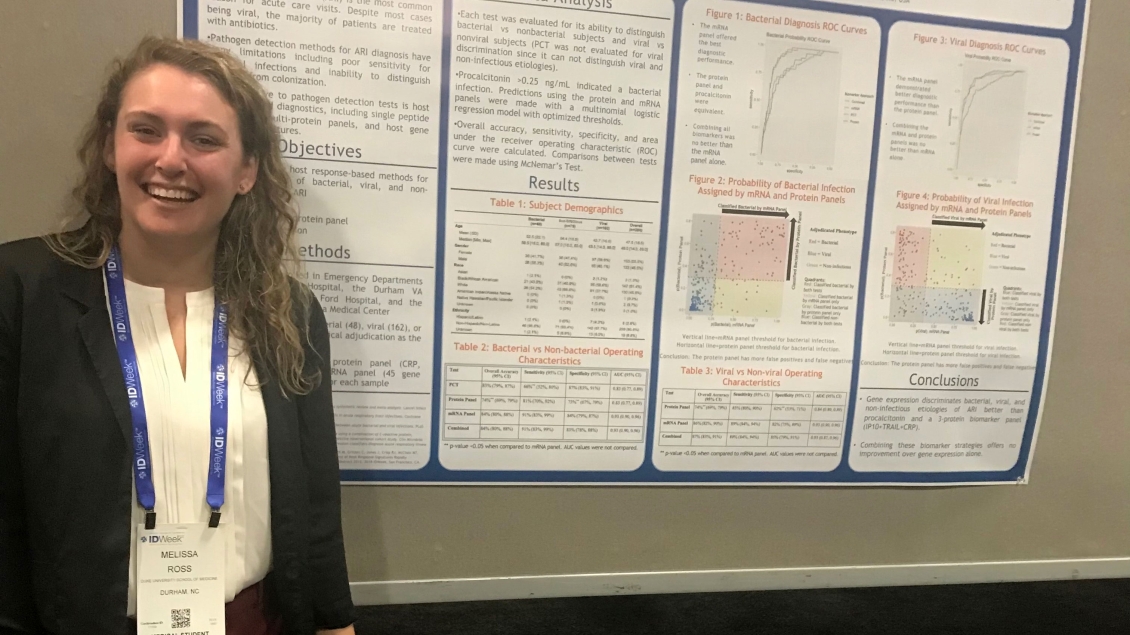
To further complement our clinical experiences, each of our residents is required to complete a scholarly project during their training. The results of these projects are presented at the Annual Research Symposium for both Internal Medicine and Pediatrics.
Residents have the opportunity to designate up to six weeks of electives as “research” time to explore their scholarly interests. Scholarship is broadly defined and may be based in education, public health/policy, or the clinical or basic sciences. The subject of study is solely determined by the individual resident's interest. We challenge residents to harness their interests and engagement in any area of their choosing and view it through a scholarly lens. We have found that this has provided a wonderful opportunity for residents to get first-hand experience with the process of developing a research question, collecting and evaluating data, and presenting data to their colleagues.
Many of the research projects completed by our residents have been awarded research grants; presented at state, regional, or national meetings; and published in peer-reviewed medical journals.
Based on the quality and innovative nature of our residents’ research, our residents consistently receive awards from our Departments of Internal Medicine and Pediatrics in recognition of outstanding scholarship. In addition, following graduation we have had a number of residents pursue further research training as National Clinician Scholars (formerly Robert Wood Johnson Clinical Scholars), General Medicine or General Pediatric Research Fellows, or through subspecialty fellowship training. Over the years, our graduates consistently comment on the value of this educational experience, even if they elect not to pursue a research-based career.
- Single-Center Experience and Outcomes of a High-Risk Cardio-Obstetrics Program
- Reproductive Counseling In Women with Congenital Heart Disease: A Survey of Primary Care Provider Comfort and Knowledge
- Mobile Oncology Units to Address Geographical Disparity in Cancer Care: Time Is Now
- Plasma Proteomic Signatures in Juvenile Dermatomyositis Define Novel Differentially Regulated Proteins in Treatment Naïve Patients
- Asthma and Coronavirus Disease 2019-Related Outcomes in Hospitalized Patients: A Single-Center Experience
- Characteristics and Outcomes of Young Adult Patients with Severe Sepsis Admitted to Pediatric Intensive Care Units Versus Medical/Surgical Intensive Care Units
- Clinician Accuracy in Identifying and Predicting Organ Dysfunction in Critically Ill Children
- Left Atrioventricular Valve Outcomes Following Repair of Atrioventricular Septal Defect with a Single Papillary Muscle in the Left Ventricle
- Natural History of Hypertrophic Cardiomyopathy in Rasopathy Patients
- Pediatric Cross-Cover Emergencies Curriculum
- Resident Burnout: What Do Residents Need?
- ED Boarding: Inpatient Provider Perception of Safety Concerns and Gaps in Knowledge of Policies
- If Your Heart Were to Stop: Characterization and Comparison of Code Status Orders in Adult Patients Admitted with COVID-19
- ICU Telehealth Use and Concern for Workforce Shortages Among Rural Hospitals in Michigan at the Onset of the COVID-19 Pandemic
- My Patient Needs Home IV Antibiotics – Now What?: Assessing Provider Familiarity with OPAT at a Veterans Affairs Hospital
- Patient Understanding and Perspectives of Antibiotics and Antibiotic Resistance Following Hospital Discharge
- Awareness of Peripheral Intravenous Catheters Among Nurses, Physicians, and Students